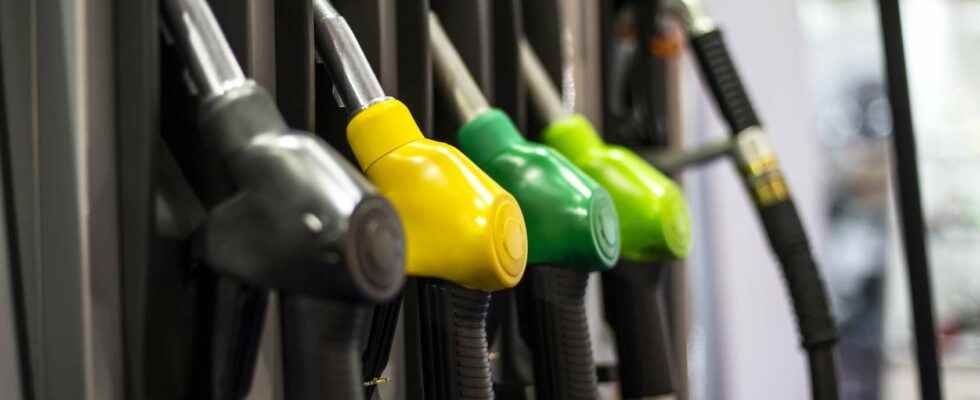If you want to emit less carbon dioxide (CO2) in the atmosphere, one of the greenhouse gases responsible for global warming, which fuel to prefer? Not so easy to answer, actually.
You will also be interested
The first stage of reflection must begin with the chemistry and it leads to an unquestionable conclusion: during its combustiona liter ofgasoline rejects 2.28 kg of CO2while one liter of diesel fuel rejects 2.67 kg. The cause of this difference is the Volumic mass higher in diesel, as well as its higher carbon content.
At equal engine performance, diesel therefore emits more CO2 than gasoline.
The calculations made to obtain these figures
Gasoline can be assimilated to an octane (n=8) and diesel to a hexadecane (n=16).
So consider theequation from the combustion of alkanes:
VSnotH(2n+2) + (3n+1)/2*(O2+3.76N2) –> nCO2 + (n+1)H2O +(3n+1)/2*3.76N2
The mass of CO2 rejected by mole octane (C8H18) consumed is therefore: n * mass molar CO2i.e. 8*44 = 352 g.
Now the mass of one mole of octane is 8*12 + 18*1 = 114 g.
So the ratio CO2 emitted based on gas mileage is 352/114 = 3.09.
Knowing that the density of gasoline is 0.74 kg/l and that one gram of burnt gasoline releases 3.09 grams of CO2it comes: 0.74*3.09 = 2.28 kg of CO2 per liter of gasoline consumed.
In the case of diesel (n=16), the mass of CO2 rejected is 16*44 = 704 g, while the mass of one mole of hexadecane is 226 g.
The CO report2 emitted according to diesel consumption is therefore 704/226 = 3.16.
Knowing that the density of diesel is 0.85 kg/l and that one gram of burnt diesel releases 3.16 grams of CO2it comes: 0.85 * 3.16 = 2.67 kg of CO2 per liter of diesel consumed.
What are car engine emissions?
Reality is more complex. The Diesel engines, in fact, consume less than gasoline engines. At equal mileage, the difference is around 25% in favor of diesel engines. To see the Ademe comparator. However, the proportion varies according to the models and the comparisons are not always simple: diesel engines are more frequent on automobiles large sizes and gasoline is preferred on smaller vehicles.
Furthermore, the CO2 is not the only greenhouse gas emitted by automobiles. NOsx (oxides ofnitrogen) are part of it and Diesel produces more of it. Yes, but we know how to reduce them. Diesel engines are fitted with devices which considerably reduce the emissions from NOx. The evolution of techniques and regulations will modify these conclusions in the years to come…
In addition, greenhouse gases have a bad influence on the thermal balance of theatmosphere of the planet, but car pollution is a different matter. NO2 East irritating to the respiratory system but without effect pathogenic demonstrated. CO2, it is not a pollutant. Our lungs produce it.
The fine particles emissions from engines represent the greatest health hazard and are the cause of thousands of premature deaths every year. Diesel is for this point more polluting but gasoline engines are far from innocent. Here again, new regulations (imposing lower emissions of CO2) and technological innovations will change the situation in the coming years.
Interested in what you just read?
